Press Gaggle By Principal Deputy Press Secretary Josh Earnest aboard Air Force One en route Decatur, Georgia, 2/14/2013
Aboard Air Force One
En Route Decatur, Georgia
10:35 A.M. EST
MR. EARNEST: Good morning, everybody. And Happy Valentine's Day. I'm glad you're on board for our trip to Decatur, Georgia today. Rest assured you can -- we'll be back in plenty of time for you to do something nice for your valentines this evening.
So let me begin with a brief opening statement, and then we'll open it up to questions.
As I mentioned, we're headed to Georgia this morning where the President will discuss one of the initiatives that he unveiled in the State of the Union that will expand economic opportunity for the middle class and everyone working hard to get there -- high-quality preschool education for every child in America.
Studies show that for every dollar we invest in a quality preschool program, we’ll save more than 7 dollars because of the impact that a good early childhood education program has for our youngest students, including on things like graduation rates, teen pregnancy rates, and even violent crime rates. The OECD estimates that the United States ranks 28th out of 38 for our share of children that are enrolled in high-quality preschool programs.
So the point is that these programs have a profound impact on the lives of our children, and yet we're not doing enough on it. States like Georgia and Oklahoma, which are states that are run by Republican governors -- and routinely vote for Republican presidential candidates, by the way -- have made important investments in these kinds of programs. So there is no reason this should get bogged down in partisan politics. And the President will call on members in his remarks today -- members of Congress in both parties -- to act quickly on this.
With that, we’ll open it up for a few questions.
Q All right, Josh, moving straight to a political question -- it sounds like the Republicans are planning a full-scale filibuster of Senator Hagel. Does the President still stand by his nomination? And how do you intend to move on?
MR. EARNEST: The President stands strongly behind Senator Hagel. The President believes that Senator Hagel would do a wonderful job in a very important role, which is leading the Department of Defense at a challenging time for our country.
Currently, we have 66,000 men and women in uniform who are deployed in Afghanistan. The President talked in his State of the Union address earlier this week about the important transition that’s underway there to bring those troops home. We need our new Secretary of Defense in place to be a part of that process.
We obviously have some looming questions about the impact of the sequester on the Department of Defense budget. The outgoing Secretary of Defense, Leon Panetta, has commented about the terrible impact that the sequester would have on our military readiness.
Next week, there is a defense ministerial meeting in Brussels where the U.S. will meet with our allies who are currently making important contributions to the effort in Afghanistan to talk about the transition that’s underway in Afghanistan. We need our new Defense Secretary to be there.
It does not send a favorable signal for Republicans in the United States Senate to delay a vote on the President's nominee -- a nominee who is a member of their own party -- to be the Secretary of Defense. It's difficult to explain to our allies exactly why that’s happening. It also sends a signal to our men and women in uniform who are currently deployed around the globe and who are currently serving on the front lines in Afghanistan and are taking fire today. They need a new Secretary of Defense.
So we urge Republicans in the Senate to drop their delay. Here's why this delay is critically important: There is a clear majority in the United States Senate for Senator Hagel's confirmation. These delaying tactics are unconscionable and they should end right away.
Q Do you have any kind of a strategy to have -- to avoid the delay or to get over this delay? Is there anything else that you guys can do?
MR. EARNEST: Well, obviously, we're in regular consultation with the senators on Capitol Hill about this. We've made -- the views about this unconscionable delay that I've mentioned have been made clear and are well-known by Republican senators who are -- who have put this delay in place.
One point that I do want to make about our cooperation with the Senate -- there are a number of legitimate questions; the Senate has a legitimate goal in advising and consenting on the President’s nominees. But this goes -- this is separate from that. We have worked in close coordination with the Senate on this nomination. We provided 20 member and staff briefings; 10 different congressional hearings on Benghazi in particular have been held; 6 different witness interviews; 40 inquiries that we've responded to by producing more than 10,000 pages of documents.
So our efforts to coordinate with the Senate on these issues is evident, to put it mildly. And that’s why we are calling on the Republicans in the Senate to end their delay right away.
Q Josh, will the President make calls from Air Force One today or from the road today to some of these senators to try to move their objections? We asked, also, Jay earlier about whether the White House would provide additional details. Some of these senators seem to want sort of more granularity about who the President called on the day of the attacks or whatever. Is he making calls? Are you providing that additional information? And will Panetta stay on as long as it takes to get the next Secretary of Defense confirmed?
MR. EARNEST: I don’t at this point have any calls to read out to you. In terms of providing additional information, I just ran through a pretty extensive litany of -- the extent to which we have gone to try to provide information to the senators who are interested in some of these issues.
In terms of Secretary Panetta's status, it's my understanding that he will continue to have the -- hold the office of Secretary of Defense until Senator Hagel is confirmed.
Q Will he travel to Brussels if it were to come to that?
MR. EARNEST: For his travel schedule, I'd refer you to the Department of Defense. But that doesn’t change -- even if he goes -- Secretary Panetta has represented the United States ably as Secretary of Defense. You heard the President talk about that a little bit during his going-away ceremony last week.
What we need is we need our new Secretary of Defense to be in place at this very critical time where we're consulting with our allies about the drawdown in Afghanistan. There is no substitute for that, and there is no good reason why he should not be there.
Q Josh, last night, the White House said that the President is opposed to this idea in the House to extend the federal pay limit, but stopped short of saying he would veto it. Does that mean that he wouldn’t support it -- he would sign it if it were passed, he just wouldn’t enjoy signing it? And how does that square with his plan to give a 1 percent increase to federal pay?
MR. EARNEST: I'm going to have to take that question. I'm not familiar with all of the details of that. But I will get back to you on that today.
Q Is the White House on board with the evolving Senate Democratic plan to avert the sequester?
MR. EARNEST: Well, I understand that Senate Democrats will be making a presentation later today about their plan for dealing with the sequester. Based on the reports that I have seen, it appears that Senate Democrats have tailored their approach to fall in line with the President's favored approach, which means that it has balance; which means that there will be some increased revenues as well as some additional spending cuts to buy down the sequester; to do, as the President suggested in the briefing room just last week, that we should get a little room for Congress to go through its regular order to deal with the deficit. And hopefully, with the time and space to go through that regular order -- to pass budgets and do the other hearings and appropriations hearings and the things that they’re involved with, that we can finally resolve this standoff.
This is really important. We saw, just a couple of weeks ago with the release of the GDP numbers, the terrible impact that planning for the sequester is already having on our economy. It would be bad for our economy for the sequester to go into effect. It would be bad for our military readiness for the sequester to go into effect.
We can’t afford any more self-inflicted wounds. We have to deal with this problem. The Senate has put forward -- or will put forward today -- what I understand, based on reports -- will be a balanced approach. That is a positive sign. And we hope that Congress will act in bipartisan fashion, as is required, to make sure that the sequester does not go into effect, both because of the consequences it would have on our economy, but also because of the consequences it would have on our military readiness.
Q Josh, American Airlines and U.S. Airlines are announcing a merger today. It would reduce the number of legacy airlines really down to three. Is the administration concerned at all about competition and what this will mean for prices for the consumer?
MR. EARNEST: Jim, I appreciate the question. As you know, the Department of Justice has a regular process for reviewing these kinds of private commercial transactions. It’s my understanding that those reviews typically involve -- include the impact that these deals would have on consumers. So I don’t want to say anything that would get ahead of that reviewing process. So I don’t have an immediate reaction. You can check with the Department of Defense to see if they have anything -- I mean, the Department of Justice, to see if they have anything on this.
Q Just to follow up on that -- I understand that this a DOJ problem. But the President repeatedly said, even in his State of the Union and yesterday again, that he is there fighting for the American public. From that point of view, would you see him fighting against this in any way because of the -- there’s been experts saying it’s going to raise prices for the American public?
MR. EARNEST: Well, that exact question is, as I mentioned, is something that is typically included in Department of Justice reviews like this. So it’s not appropriate for me to make that assessment from here based on what outside experts are saying. There’s an official Department of Justice process for reviewing these kinds of things, and I’ll let them conduct their review.
Q Senator Rubio said yesterday that it looks like the administration is trying to scuttle immigration reform because they won’t want to tie it to triggers on border security. Do you have a response to that?
MR. EARNEST: The only reason -- let me say it this way -- the primary reason that we are seeing immigration reform rise on the priority list is because of the President’s efforts to put it there. The President has been committed to immigration reform and fixing our broken immigration system for quite some time. It’s something that he’s campaigned on. It is something that was strongly supported by the American public. And it’s something that the President has been aggressively pushing since the opening days of his second term.
The President is committed to working in bipartisan fashion with this so-called Gang of Eight that’s emerging to deal with this issue. The reasons for that are numerous. Our broken immigration system has a bad impact on our economy. What we need to do is we need to level the playing field for both workers and employers. We need an immigration system that reflects our nation’s heritage as a nation of laws and a nation of immigrants.
The President has been committed to border security, which is a critical part of fixing our broken immigration system. The President has done a number of things to put assets and focus attention on securing our borders. He’ll continue to do that, and he’ll continue to work in bipartisan fashion to fix our broken immigration system. And that’s where we are.
Q And is tying it to border security a non-negotiable point for the administration?
MR. EARNEST: No, it’s the view of the President that border security should be part of fixing our broken immigration system. But the other thing that should be part of that is a clear path to citizenship. And that’s what we’re working on. You saw that the President convened a meeting yesterday with some of the Democratic senators who are involved in this effort. And that’s an indication that the President is engaged on this.
I should point out one other thing. The President has also been clear that this bipartisan effort needs to move promptly. Delays and bickering is not something the President will tolerate. We’re not going to let this get bogged down in the process. We need to move expeditiously to get this done. That’s what the President is counting on. And the President is interested in working with senators on both sides of the aisle, including with Senator Rubio to get this done.
Q Josh, can you talk a little bit about the minimum wage? We’ve heard some remarks from Speaker Boehner expressing reluctance to pass this. What’s the administration’s strategy? What’s its thinking about the prospects for passing a minimum wage bill?
MR. EARNEST: Well, I think the President was pretty eloquent in his statement on Tuesday, if I don’t say so myself, about why this is such a critical issue. Raising the minimum wage to $9 an hour is good for the economy. You don’t have to take my word for it. There are a whole -- there are volumes of academic studies that have been produced examining this exact issue.
Raising the minimum wage puts more money in the pockets of people who are likely to spend it. They’re going to spend it on food; they’re going to spend it on clothes for their kids. That is good for businesses large and small, and that is why the President -- that’s one reason that the President is strongly supportive of raising the minimum wage.
The other is the President believes that we need to reward hard work. And currently, if you’re the head of the household of four people and you have a full-time, minimum-wage job, you’re working 40 hours a week but making minimum wage, you’re raising your family below the poverty line. That is not right. That is not a situation that should exist in this country. The President is committed to solving it.
And because of some of the tax measures that the President has put in place that you heard Jason Furman talk about yesterday, and by raising the minimum wage, we could solve that problem. The President remains committed to standing on the side of middle-class families and those families that are scratching and clawing trying to get into the middle class. That’s something the President is going to continue to fight for.
Now, one other thing I want to point out in the minimum wage -- the last two times that we have raised the minimum wage, Republicans were instrumental in the effort to get it raised. So in the late 1990s -- I know that then-Speaker of the House Newt Gingrich was involved and supportive of the effort to raise the minimum wage. And the last minimum wage increase that we saw in 2007 was signed into law by President George W. Bush. Republicans should support it this time, too.
Q Can you also talk a little bit about the pre-K education plan? I’m wondering how we would ensure that these are high-quality pre-K programs. What will be the mechanism to make that happen?
MR. EARNEST: There’s a little bit of information in the fact sheet that we put out last night about some of the important standards that need to put in place. Because you’re right -- we don’t just need early childhood education problems, we need high-quality early childhood education programs. So the President wants to put -- include standards for curriculum. He wants to include standards for teachers to make sure they’re well-trained and highly-qualified to teach our youngest students. He wants to make sure that we have a low adult-to-child ratio in the classroom. He wants to make sure that class sizes aren’t too big. And, most importantly, he wants to make sure that we’re continually evaluating these programs to ensure they’re having the intended effect. So there are in place some high standards that the President wants to make sure that we live up to.
Q How much will it cost the federal government provide universal pre-K?
MR. EARNEST: Well, first of all, as I noted at the beginning, this is a really good investment of taxpayer dollars. That for every dollar we put into these early childhood education programs, we save more than $7 because of the impact that these programs have on the lives of our children. They have a measurable impact on everything from graduation rates to income potential to literacy rates to even violent crime rates, Teen pregnancy rates is another example. So this is a good investment of taxpayer dollars.
In terms of the specifics about how much this program would cost, that will be included in the budget that the President plans to release next month. I’d also remind you that the President committed in the State of the Union address to ensuring that proposals like this will not add to our deficit. And, again, how we’ll pay for this program will also be included in the budget released next month.
Q Can I ask you about Palm Beach this weekend? What is the President going to be doing? Is he meeting with donors of any kind? Is he staying at a private home or in a hotel? Is this -- what kind of trip is this?
MR. EARNEST: As you point out, Jim, the President is traveling to Chicago for an event to talk about the economy tomorrow morning -- or early afternoon. And then after that event, he’s traveling to Florida where he’s going to spend President’s Day weekend relaxing with some friends. There’s no work on the schedule.
Q What about the image of Palm Beach? Is he going to be -- even Marco Rubio in his response was pointing out about how middle class he is. He seemed to have the Republicans on the ropes in that way. What is the symbolism of going to Palm Beach for the weekend where so much money is, and where donors are always at?
MR. EARNEST: The President is going to enjoy the President’s Day weekend with some friends, and I don’t think -- as we’ve discussed, the President of the United States is the President of the United States 24 hours a day, and will fulfill his responsibilities as President even while he’s getting some well-deserved downtime with some friends this weekend. I don’t think the American people will begrudge him that.
Q Josh, you pointed to the potential for improved graduation rates from this early childhood program the President is proposing. Yet, Georgia still has one of the lowest high school graduation rates in the country, and it’s had this program that the President is touting for more than 15 years. Would the administration look for deficiencies in that program as it comes up with its own standards?
MR. EARNEST: Well, suffice it to say the President is committed to ensuring that we incorporate best practices in these high-quality early childhood education programs. I’m not familiar with the specific details of the Georgia program. All I know is it’s something that they’ve spent a lot of time investing in and making a priority.
Q Well, they only have a 60 percent enrollment rate.
MR. EARNEST: Well, that certainly will be -- one of the reasons that the President is so committed to this program is because he believes that every child should have access to a program like this. So that’s certainly one of the things that we would want to improve upon.
But what’s important right now is demonstrating the political will to make smart investments. And, again, these investments are smart not just because they make a lot of financial sense for the country, but also because, as the President pointed out, we have no higher priority than making sure that we’re investing in and taking care of our kids. And ensuring that the youngest students in this country have access to high-quality educational programs is a top presidential priority. And this is the way that we can do something really important about that.
Q On Iran, there’s a report out this morning that Iran has sought to acquire tens of thousands of specialized magnets that are used in the nuclear process. Is that something the U.S. has been tracking? And if it is true, does that speed up the timetable for action to prevent Iran from acquiring a nuclear weapon?
MR. EARNEST: Thanks for your question, Josh. If you’ll indulge me, I’m going to actually read you an answer we have here:
We are well aware of Iran’s aggressive efforts in violation of its U.N. Security Council Resolution obligation to obtain sensitive materials for its uranium-enrichment program. But I’m not in a position at this time to comment on any specific transaction. The unprecedented international sanctions put in place against Iran are not only designed to crystallize the choice for the Iranian regime regarding its nuclear program, but also to deter and disrupt Iranian procurement of components to support its nuclear program.
The international restrictions have choked the supply of critical components for Iran’s nuclear program so that Iran today falls far short of the goals it set for itself and its nuclear program only a few years ago. We hope that the Iranian regime will make the strategic decision to come to the P5-plus-1 talks on February 26th in Kazakhstan prepared to discuss substance, so that there can be progress in addressing the international community’s concerns about the nature of the Iranian nuclear program. We -- the United States certainly remains ready to do so.
Q Any prospect for bilateral talks with Iran at this point?
MR. EARNEST: Nothing that I’m prepared to report at this time.
Anybody else? We’ll see you on the ground, guys. Thank you.
END
10:56 A.M. EST
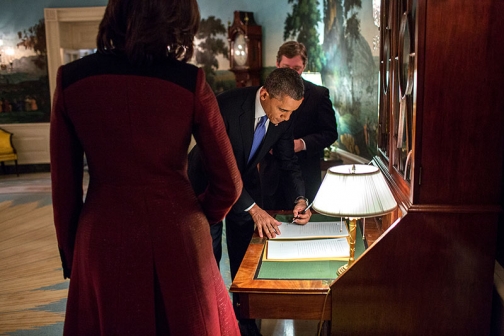
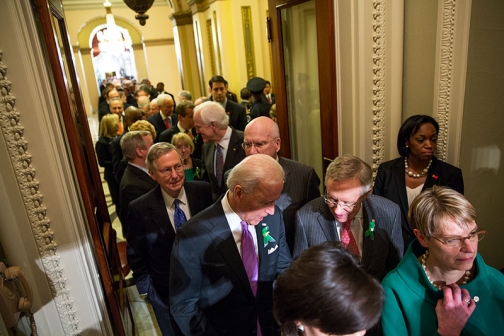
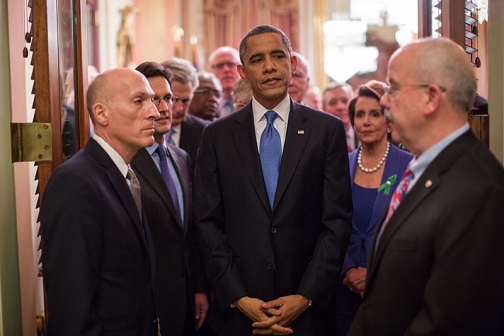
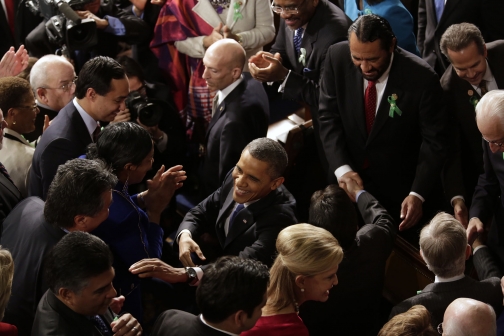
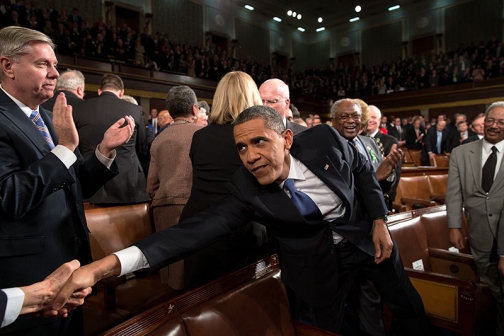
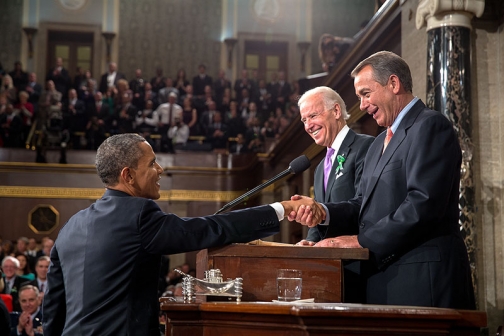
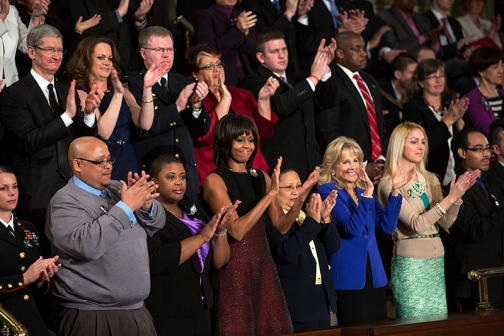
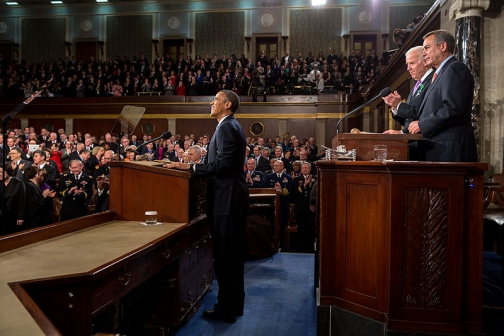
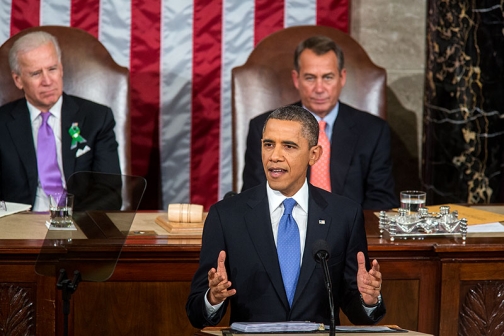
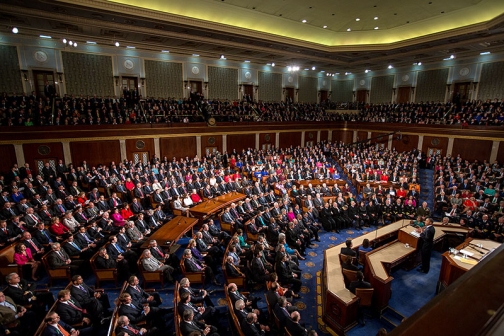

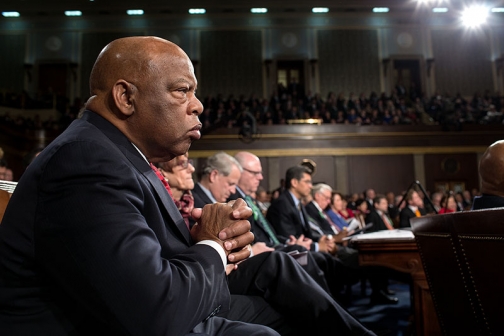
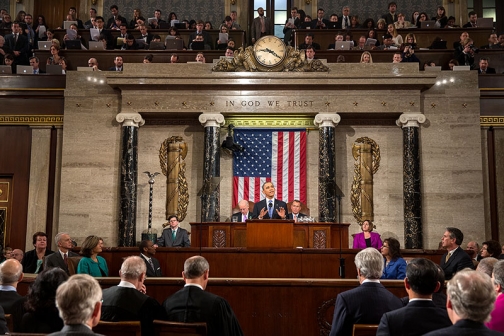
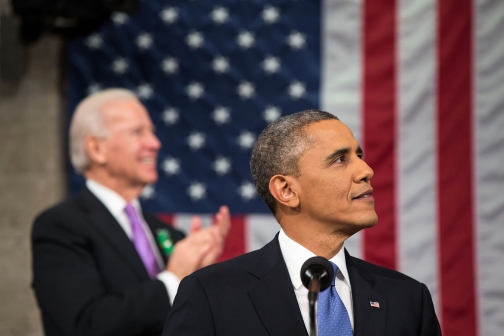
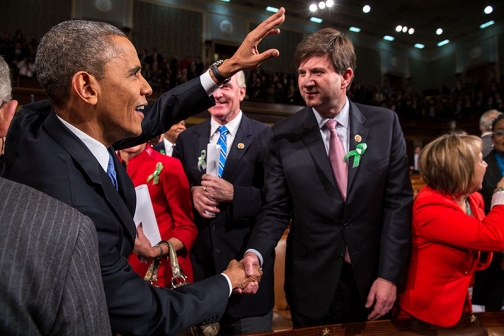
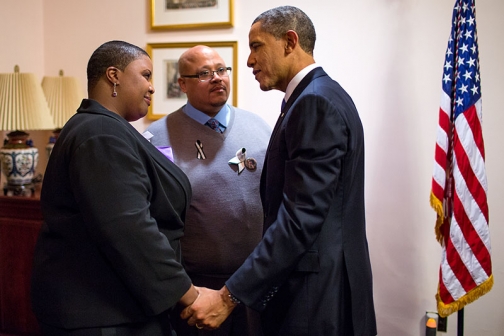


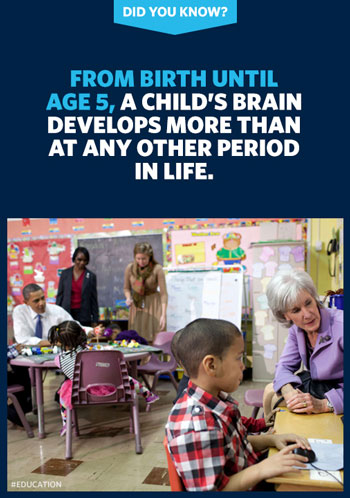 The beginning years of a child’s life are critical for building the early foundation needed for success later in school and in life. Leading economists agree that high-quality early learning programs can help level the playing field for children from lower-income families on vocabulary, social and emotional development, while helping students to stay on track and stay engaged in the early elementary grades. Children who attend these programs are more likely to do well in school, find good jobs, and succeed in their careers than those who don’t.
The beginning years of a child’s life are critical for building the early foundation needed for success later in school and in life. Leading economists agree that high-quality early learning programs can help level the playing field for children from lower-income families on vocabulary, social and emotional development, while helping students to stay on track and stay engaged in the early elementary grades. Children who attend these programs are more likely to do well in school, find good jobs, and succeed in their careers than those who don’t.